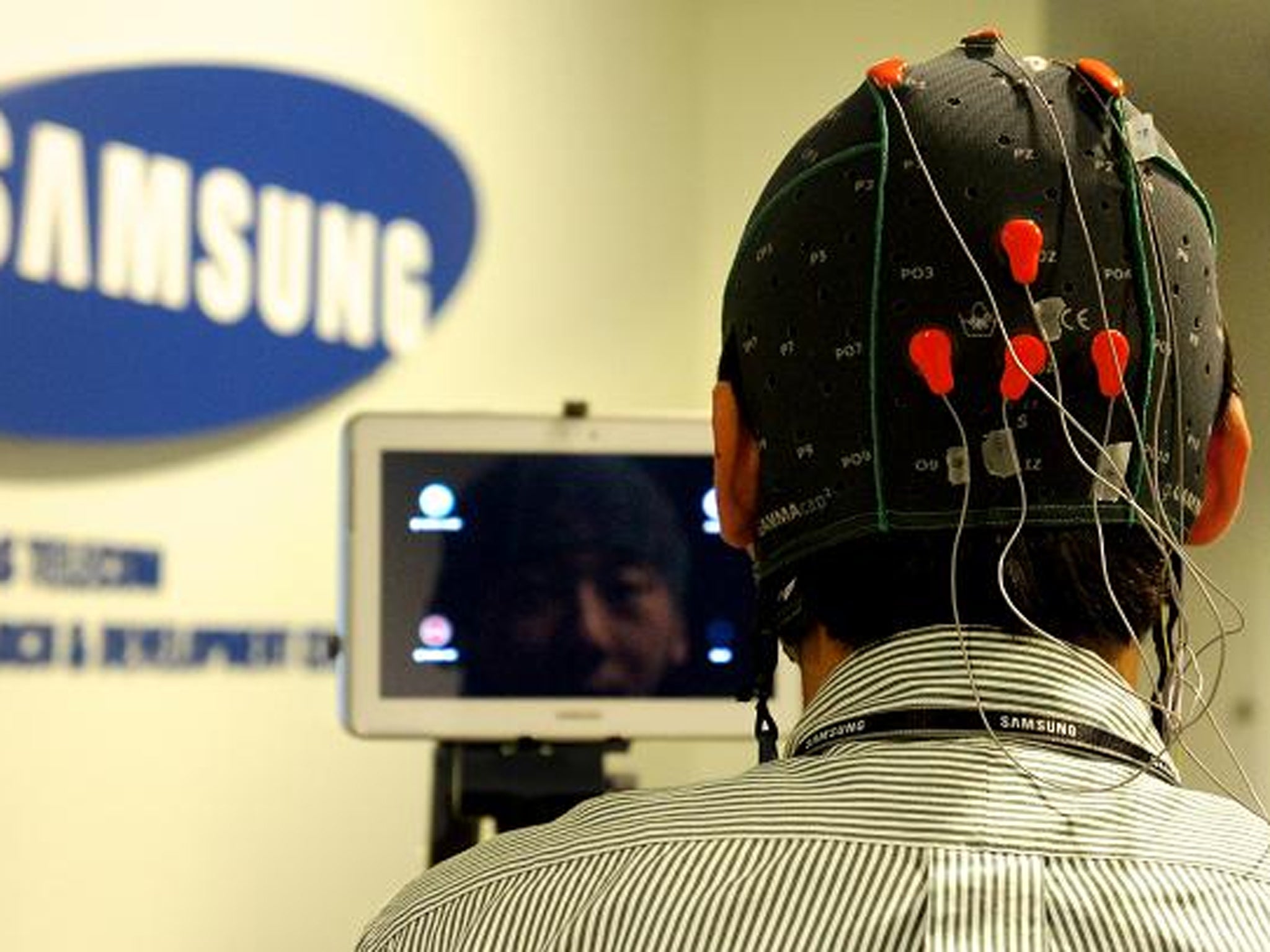Introducing the mind control mobile: Samsung says it is testing smartphone controlled by brain waves

Your support helps us to tell the story
As your White House correspondent, I ask the tough questions and seek the answers that matter.
Your support enables me to be in the room, pressing for transparency and accountability. Without your contributions, we wouldn't have the resources to challenge those in power.
Your donation makes it possible for us to keep doing this important work, keeping you informed every step of the way to the November election

Andrew Feinberg
White House Correspondent
Mobile phone giant Samsung has revealed that it is tworking on a smartphone that can be controlled by a user's brainwaves.
Researchers at the Korean manufacturer's Technology Lab are working an academic at the University of Texas to test how people can use their thoughts to launch an app, select a contact to call, choose a song on a playlist, and switch a device on or off, according to a report in the Massachusetts Institute of Technology's Technology Review.
The testing involves a user wearing a cap studded with EEG-monitoring electrodes while researchers monitor well-known brain activity patterns that occur when people are shown repetitive visual patterns. Researchers found that people can launch an application when they concentrate hard enough on an icon blinking at a distinctive frequency.
Samsung says it has no immediate plans to roll out a mind-controlled mobile phone to the public, but that the research is paving the way in research into finding new ways to interact with mobile devices, including tablet computers.
"Several years ago, a small keypad was the only input modality to control the phone, but nowadays the user can use voice, touch, gesture, and eye movement to control and interact with mobile devices," Insoo Kim, Samsung's lead researcher told Technology Review. "Adding more input modalities will provide us with more convenient and richer ways of interacting with mobile devices."
Current EEG electrodes take around 45 minutes to fit and require a gel or liquid to come between the persons scalp and the contact, but Roozbeh Jafari, an assistant professor of electrical engineering at the University of Dallas, says he has developed a system that does not require liquid and takes only 10 seconds to set up.
However, Jafari's interface still requires the user to wear a cap covered in wires; not ideal for the high street, then.
Subscribe to Independent Premium to bookmark this article
Want to bookmark your favourite articles and stories to read or reference later? Start your Independent Premium subscription today.
Join our commenting forum
Join thought-provoking conversations, follow other Independent readers and see their replies
Comments